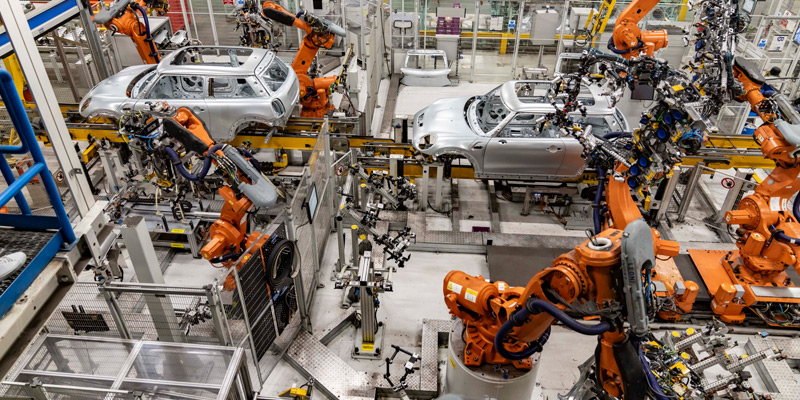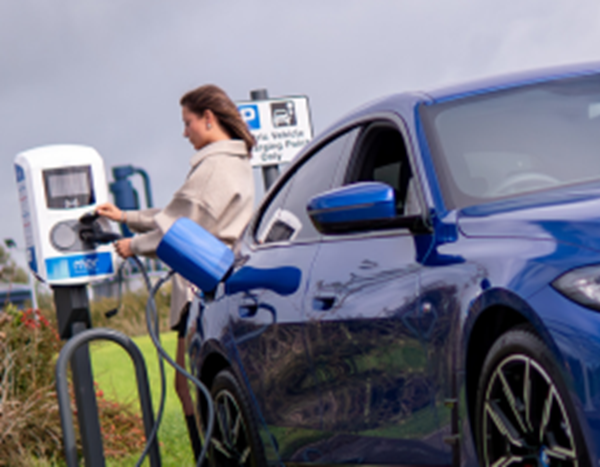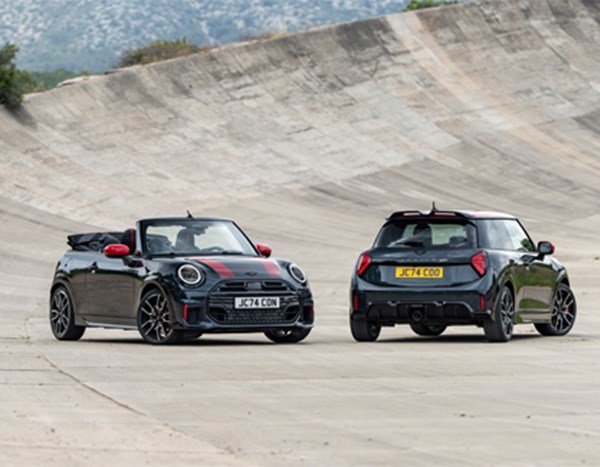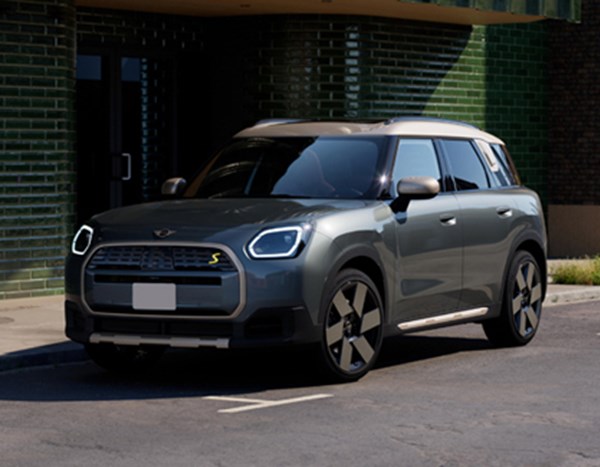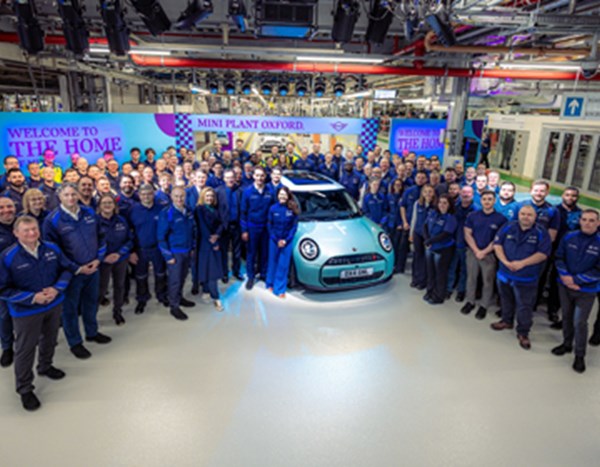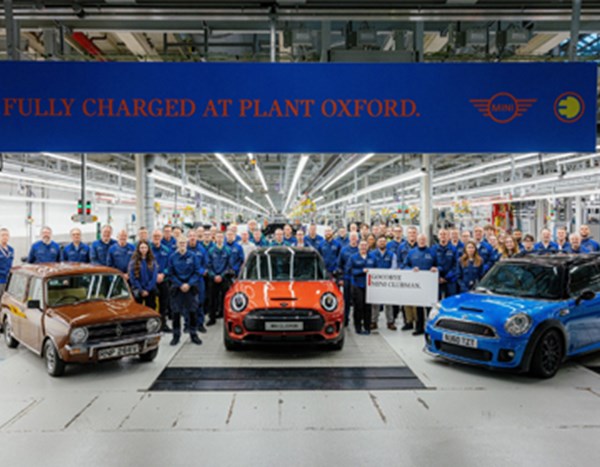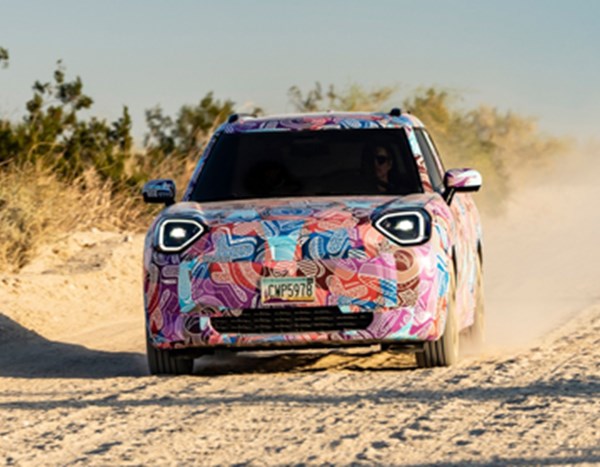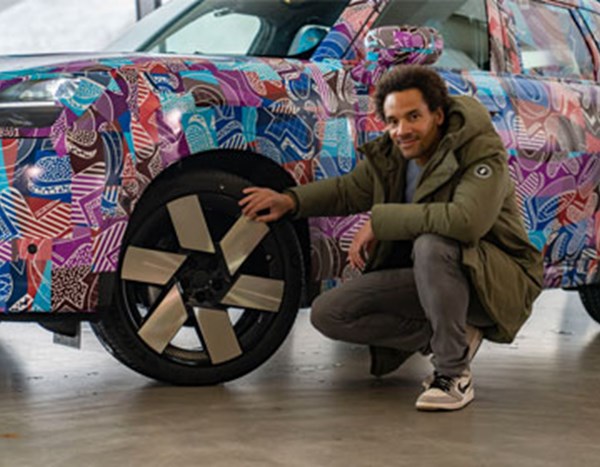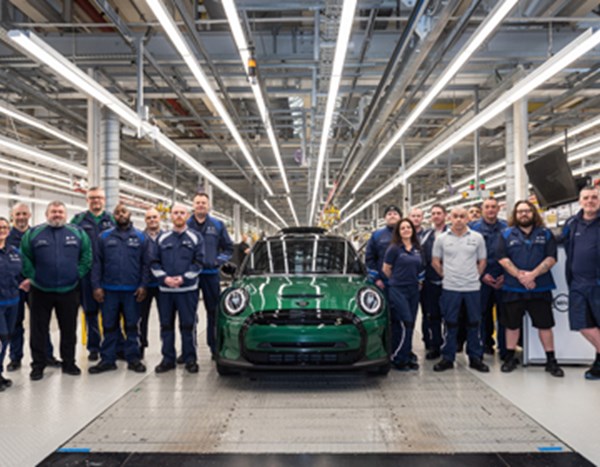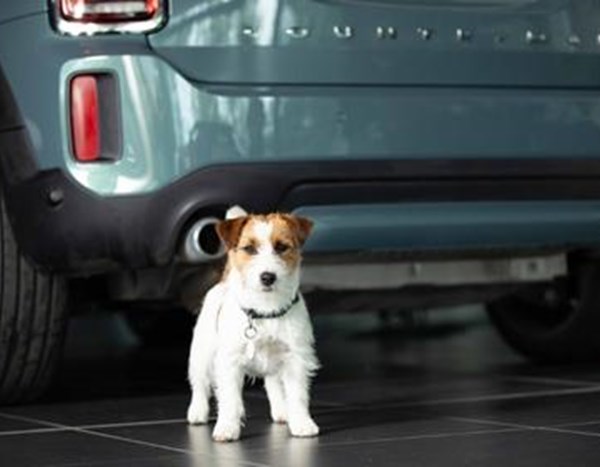MINI Plant Oxford Goes Electric
BMW Group has announced a new investment of more than £600 million in the MINI factories at Oxford and Swindon.
The Oxford plant is gearing-up to build two new all-electric MINI models from 2026, the 3-door MINI Cooper and the compact crossover MINI Aceman. By 2030, production will be exclusively electric and the BMW Group will have spent over £3bn on its Swindon, Hams Hall and Oxford plants since 2000.
“With this new investment we will develop the Oxford plant for production of the new generation of electric MINIs and set the path for purely electric car manufacturing in the future”
Milan Nedeljković, Member of the Board of Management of BMW AG responsible for production
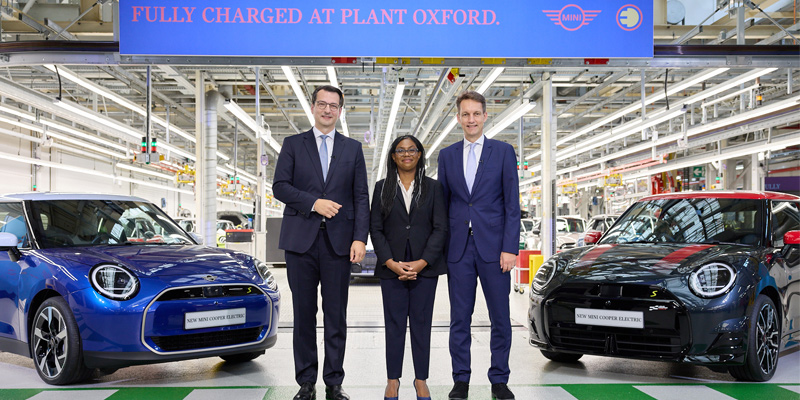 Fully Charged at Plant Oxford: Dr Milan Nedeljković, The Rt Hon Kemi Badenoch MP and Dr Markus Grüneisl.
Fully Charged at Plant Oxford: Dr Milan Nedeljković, The Rt Hon Kemi Badenoch MP and Dr Markus Grüneisl.
This development has been supported by the UK Government and will help to secure jobs at the Oxford manufacturing plant and at the body-pressing facility in Swindon.
“BMW Group’s investment is another shining example of how the UK is the best place to build cars of the future. By backing our car manufacturing industry, we are securing thousands of jobs and growing our economy right across the country”
Prime Minister Rishi Sunak
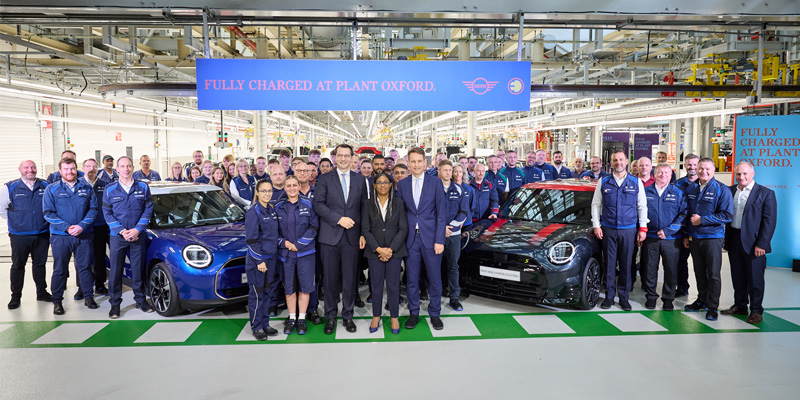
“This decision is a big vote of confidence in the UK economy and the work of this Government to ensure the continued strength of our world-leading automotive sector. We are proud to be able to support BMW Group’s investment, which will secure high-quality jobs, strengthen our supply chains, and boost Britain’s economic growth”
Business and Trade Secretary Kemi Badenoch
Oxford to Remain the Home of MINI
The Oxford plant celebrated its 110th anniversary this year and has been successfully producing the current MINI Electric since 2019, where it is fully integrated into the production line with the conventional (ICE) models.
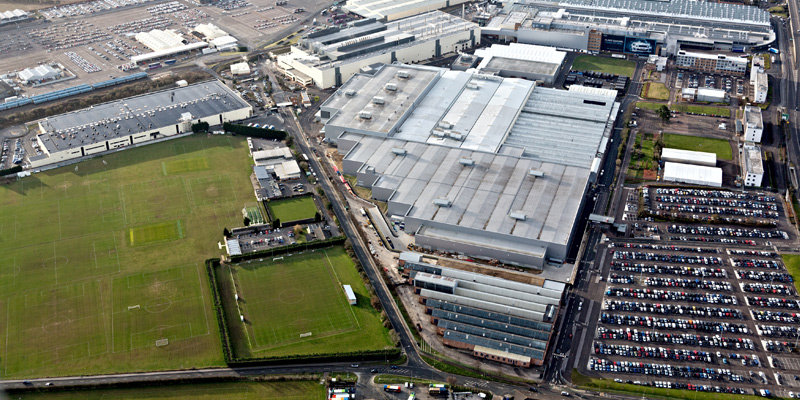
“MINI has always been aware of its history – Oxford is and remains the heart of the brand. I am delighted that the two new, fully electric MINI models – the MINI Cooper and MINI Aceman – are also being produced in Oxford, thereby confirming our path to a fully electric future. The continuing high demand for our locally emission-free vehicles shows the openness of the global MINI community to electromobility, which we will be able to serve optimally in the future, also thanks to Oxford”.
Stefanie Wurst, Head of the MINI Brand
MINI Accelerates Toward Full Electrification with New Model Line-Up and Enhanced Production Network
The MINI Plant Oxford currently produces the MINI 3-door, the MINI 5-door as well as the MINI Clubman and the MINI Electric. From 2024 the plant will start producing the next generation MINI 3-door and MINI 5-door with combustion engines, as well as the new MINI Convertible, before they are joined by the new all-electric vehicles in 2026 – the MINI Cooper 3-door and the MINI Aceman.
The factory will reach a production capacity of around 200,000 cars per year in the medium term, with ICE and battery electric vehicles (BEVs) initially being built on the same production line. From 2030, the Oxford Plant will produce all-electric MINI models exclusively.
In a few weeks, production of the new MINI Countryman will begin at the BMW Group plant Leipzig. This larger crossover model in the MINI line-up will be offered with both pure electric drive and combustion engines.
Production of two next generation all-electric MINI Cooper 3-door and Aceman models will begin in China. The new manufacturing plant in Zhangjiagang, Jiangsu Province is part of a joint venture with Great Wall Motor. Exports will begin in early 2024.
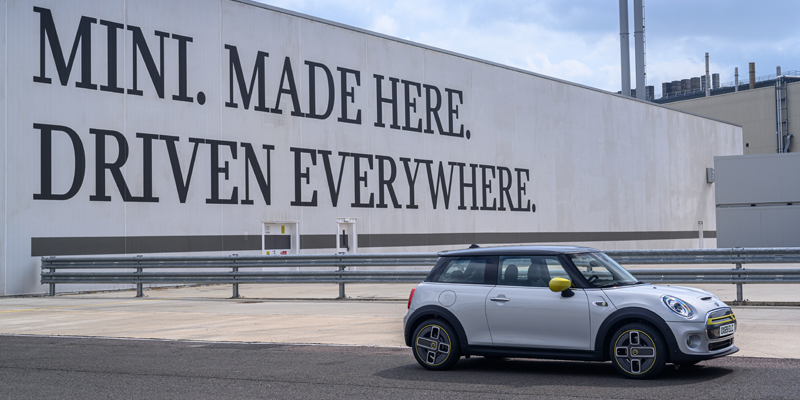
Development of UK Plant Sites
Today’s investment announcement will impact all main production areas in Oxford. The existing production lines will be developed further, with the key changes being an extension of the current body shop and a new area for battery installation. Additional logistics facilities will be built on both the Oxford and Swindon sites.
“I am proud to say that our Oxford and Swindon plants will play a central role in the BMW Group’s transition to electromobility. We are determined to continue the historic success story of our plants, producing the most loved British car brand”
Markus Grüneisl, CEO of Plants Oxford and Swindon
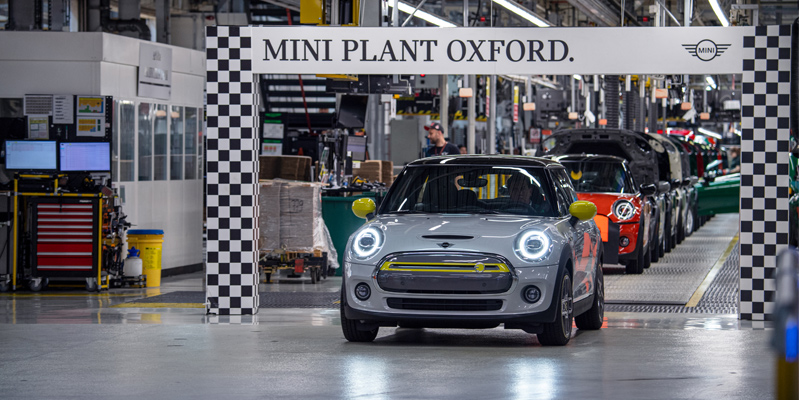
Oxford and Swindon Plants Facts and Figures
Sustainability is deeply rooted in the BMW Group production network and so plays a key role at Oxford. A holistic approach aimed at reducing CO2 emissions and minimising resource consumption underpins Plant Oxford’s sustainability credentials.
For example, the body shop has one of the largest, roof-mounted solar farms in the UK. It has more than 11,500 photovoltaic panels and covers 20,000 square metres, an area equivalent to five football pitches. It generates enough electricity to power the equivalent of 850 households, over three megawatts, and reduces the plant’s footprint by approximately 1,500 tonnes of CO2 per year.
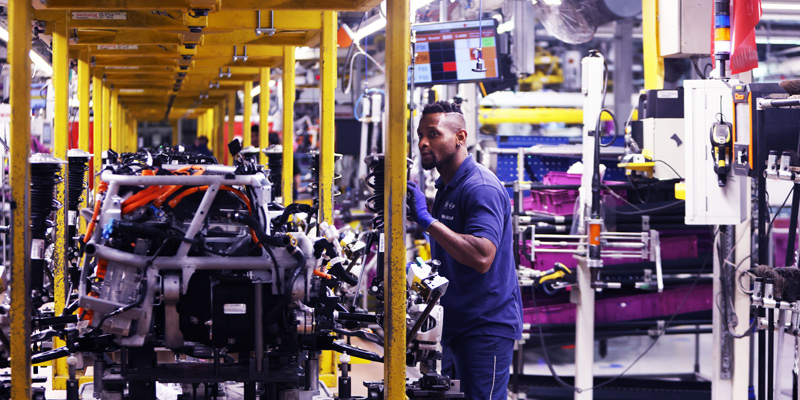
MINI Plant Oxford has been at the heart of its community for 110 years and employs over 3,400 highly skilled employees and apprentices, who together build up to 1,000 MINIs a day - one every 67 seconds. It is the third biggest vehicle producer in the UK and by the end of this year, the plant will have produced over 13 million cars bearing the badges of 14 different brands. Over 500,000 people have worked at this site over the years.
The Swindon plant was opened in 1955 by Pressed Steel as an overflow from the Oxford site. Around 600 associates work on three Blanking and 12 Press lines.
The BMW iFACTORY is the strategic plan overarching all BMW Group production sites, with the strapline ‘Lean. Green. Digital’. With the Oxford MINI Plant as a key facility in BMW Group’s transition to electromobility, it is part of the global BMW iFACTORY approach.
The Oxford and Swindon plants already use digitalisation and virtual planning tools to configure buildings and systems today, streamlining the planning of logistics routes and material, traffic flows and even the movement of employees. The whole of Plant Oxford and Swindon will be 3D-scanned in minute detail this year to obtain a full set of digital data of both the building and its systems.
